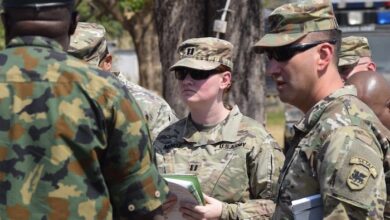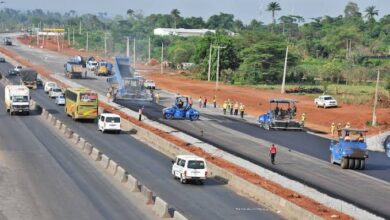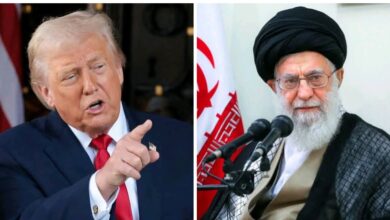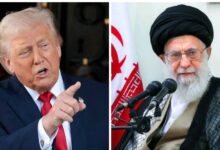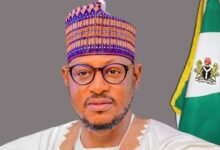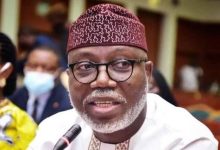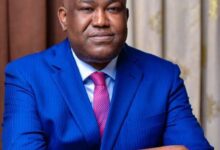PMB and the Bishops: Let the frank talks continue

By Emma Agu
These are very challenging times for Nigeria and Nigerians. And if there is one man who should feel the pinch more than the rest of us, it is President Muhammadu Buhari, PMB, for short. Why, you would ask? Simple: Uneasy, the saying goes, lies the head that wears the crown. Of course, he should have expected it. He is not an accidental president. Don’t forget that, unlike Julius Caesar who was entreated by the Romans to take the crown, PMB’s was by personal choice. Not only did he offer his head for the crown, he did so on four occasions, spanning a period of twelve years.
PMB’s case reminds one of a story told about the late Dr. K.O. Mbadiwe, unarguably one of the most flamboyant politicians that passed through these climes; the man who had the audacious dexterity to twist the English language in a manner that defied the adroitness of even Nobel winners in English. When reminded that uneasy laid the head that wore the crown and that he should tread gently in the pursuit of his political ambition, K.O. was reported to have blurted out: “Place the crown on my head, let me bother about the weight!” That was quintessentially the magisterial K.O. the coiner of jargons like men of “timber and calibre”, of “caterpillar and bulldozer”, the ambassador extra-ordinary and plenipotentiary of the Second Republic!
With politicians like K.O, Maitama Sule, M.K.O. Abiola, Ibrahim Tahir and Chuba Okadigbo, the political space never had a dull moment. They had a way of making even the most contentious disagreements look like friendly contests, the end of which left little or no bitterness. They had the uncanny ability to tell someone to go to hell, and the person would proceed gladly. But those days are gone. Today, tempers rise at the shortest provocation and political gladiators throw verbal scuds that rip through the psyche and short fuses of opponents with unquenchable anger.
That is why the recent meeting between the Catholic bishops and President Muhammadu Buhari should be defrocked of the antagonistic garb in which some commentators and political opportunists have tried to dress it, in a bid to pigeon-hole it into a preconceived narrative, thereby fuelling the climate of disharmony. I am an ardent Catholic. I know that the real Catholic cleric is a forthright messenger of God who fears neither man nor the elements. I also know that Catholic clerics are humble, respectful and peaceful people who shun the limelight. I suspect that if the Bishops had their way, they would have preferred a quiet visit to the President, away from the klieg lights, unnoticed by news hounds and angry politicians baying for the blood of their compatriots.
That is why it is important to place the visit in its proper context. First, the bishops showed predictable maturity by taking advantage of the access they had to the President. It would have been totally out of character if they had taken to the streets or any other public forum when they could look the man in the face, eye-ball to eye ball and tell him the unvarnished truth. And the truth, they told him. They told him that all was not well, that people were suffering. They commended him for the degradation of Boko Haram but wondered why his stoic resolve against terror was failing him in the area of the herdsmen/farmers crisis; they reminded him that his constituency was all of Nigeria and that the feeling of alienation by some groups needed to be addressed in appointments to political offices.
From the photographs of the event, you did not need anybody to tell you that there were tense moments; but it was also obvious that there was mutual respect. That is the way it should be. Did the bishops achieve any results? It is too early in the day to conclude. But a few things have happened to suggest that PMB actually learnt some lessons from the frank talks. By the same token, going by their confessions to some of their friends in government, it will appear that the bishops equally learnt some lessons by the visit.
Therefore, it is apposite to conclude that some of the instantaneous visible changes were the salutary effects of the frank talks. For instance, at the diplomatic level, two days after their visit, the Papal Nuncio, that is, the Vatican’s ambassador to Nigeria, was able to present his letters of credence. Why he could not do so for over three months is open to question but it needs be observed that it is not unusual for such accreditation to await certain clarifications. For another, the presidency issued a mild but reassuring rebuttal of the accusation that PMB was indifferent to the insecurity posed by the herdsmen crisis. For once, PMB who is not given to brandishing his antecedents reminded Nigerians that he had been in the theater of battle and that, during his time in the military, commanded three out of the four divisions of the Nigerian Army, at the time in Lagos, Jos and Ibadan. That’s not a swagger; it was like saying: “trust me, I know what to do, I know what I am doing”. What one deduces from that is that PMB felt sufficiently concerned by the visit of the Bishops that he decided that a response was appropriate. Actually, there are speculations that PMB felt so concerned that he confidently leaked to the bishops some inner security issues he believed were not for public consumption as these could inflame passions and lead to escalation of tensions.
Now this: All along, the attitude of PMB and his aides had been to shrug off any accusation of lopsidedness in appointments. But in a marked departure from the trend, PMB assured the bishops that he would look into their complaint about lopsided appointments, perhaps now that people who are not prone to telling lies or making statements to score cheap political points have weighed into the matter. What I deduce from this is that, upon reflection, it is beginning to dawn on the President that there is need to address the feeling of alienation and exclusion. To be sure, one area where the stark lopsidedness stares everyone in the face is the exclusion of the south east from headship of any of the nation’s security agencies. That wouldn’t be considered fair, by any standard. Such exclusion only strengthens the argument and, perhaps, the resolve, of those who are regarded as trouble makers. Now, it is possible that hierarchically, the system cannot find anybody of sufficient rank, from the south east, to fill the quota of the zone.
If that were to be the case, the nation is not devoid of precedents to fall back to. I am told of the dilemma faced by the military following the unfortunate assassination of former Head of State, General Murtala Mohammed on February 13, 1976. With General Matthew Olusegun Obasanjo, OBJ, succeeding him as head of state, the natural thing was for the next most senior officer, in the person of Lt-General T.Y. Danjuma, to take over from OBJ as Chief of Staff, Supreme Headquarters. But the tension in the army wouldn’t allow for such indiscretion as both OBJ and Danjuma are Christians while Murtala Mohammed was a Moslem. What did the military do? They fished out an officer who, though junior in rank, fit the political profile enunciated by the kingmakers. That was how then Colonel Shehu Musa Yar’Ardua was overnight promoted to Brigadier-General to become second in command as Chief of Staff, Supreme Headquarters. What that showed was that the military, when challenged, could be trusted to exhibit the required political sensibilities to drive the process of nation building and political stability. We are not in a military government but the president, as commander-in-chief, can make necessary adjustments aimed at addressing the issue of diversity. In this, he has the full weight of Section 14, sub-section 3 of the 1999 constitution of the Federal Republic of Nigeria to support any action he takes to achieve an inclusive arrangement. For the avoidance of doubt, here is the provision of Section 14, Sub-section 3 of the constitution, otherwise known as the “Federal Character Principle”: The composition of the Government of the Federation or any of its agencies and the conduct of its affairs shall be carried out in such a manner to reflect the federal character of Nigeria and the need to promote national unity, and also to command national loyalty thereby ensuring that there shall be no predominance of persons from a few states or from a few ethnic or other sectional groups in that government or in any of its agencies”.
In not so many words, the bishops conveyed to PMB the need to re-enact the political sagacity and flexibility of the past; that the polity is usually more stable when leaders show greater understanding of the complex reality of the pluralities that define our unity in diversity. One more example will suffice: confronted with a similar crisis after the 1979 general elections, the victorious National Party of Nigeria (NPN) went into an alliance with the Nigerian People’s Party (NPP), to stabilize the polity. Granted that the alliance collapsed after sometime, it no doubt provided some breathing space to re-engineer the political architecture of the country hence allowing President Shehu Shagari’s administration the leeway to record some landmark achievements.
The bishops’ visit also showed that given a different approach, a sober PMB can come out of his shell and reveal his real position on issues. Arising from that visit, the usually taciturn PMB stated unequivocally that land was reposed in state governments; that it was never the intention of the Federal Government to impose “colonies” on the states. And so, it became unequivocally clear that the issue of opening up livestock development centres or group of ranches to make up what is called agric colonies is completely at the discretion of the state governors.
What emerges from the meeting between PMB and the bishops is that much can be achieved when deliberations are not adumbrated by subterranean political motives. After all, there wasn’t much difference between the message of the bishops and those of former Presidents’ Olusegun Obasanjo and Ibrahim Babangida and of late, Wole Soyinka except that in the case of the earlier two, there was the hint of magisterial inquisition and, I regret to say, denigration of the personality of the President. Again, by publicly admonishing him not to run for a second term, the two great Nigerians had exposed themselves, rightly or wrongly, to the charge of partisanship and political high-handedness, and, if you may, denial of the fundamental right of the President.
It is only proper that the bishops should be commended for the visit to PMB. The President in turn deserves to be commended for not only giving a listening ear to the bishops but setting out to immediately address the issues raised. We commend their maturity, forthrightness and candour to all those who genuinely seek a resolution of the current national imbroglio. More of such interactions are required at all levels as we navigate the twists and turns of nation-building, in the hope that, ultimately, some consensus can be reached on how to guarantee the peaceful co-existence and prosperity of all Nigerians irrespective of ethnic group, belief system, gender or age.
Finally, it goes without saying that PMB cannot be expected to be a perfect human being. Like every mortal, he makes his mistakes. But that does not lend him culpable for the indiscretions of the past many years nor should that deny him his right to run for a second term. As a Catholic, I am satisfied that the bishops did not arrogate to themselves the prerogative of dictating the President’s political life. That is solely in the hands of God who, if PMB decides to run, will speak through the people, at the ballot box.


